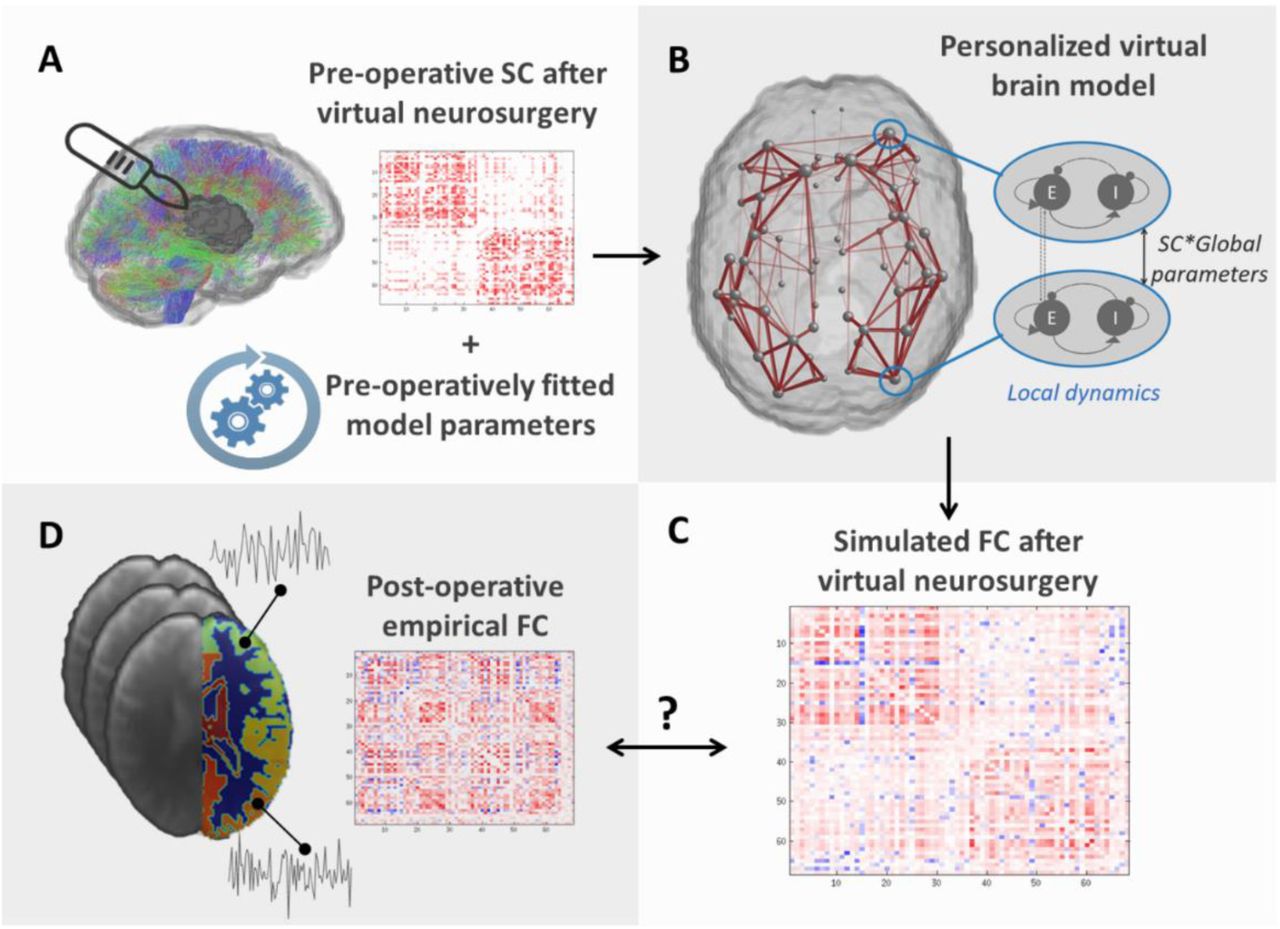We are pleased to announce that the study Modeling brain dynamics after tumor resection using The Virtual Brain will be published by NeuroImage journal. This promising study involved the first virtual neurosurgery analyses to evaluate the potential of brain network modeling in predicting brain dynamics after tumor resection.
Brain tumor patients scheduled for tumor resection often face significant uncertainty, as the outcome of neurosurgery is difficult to predict at the individual patient level. Recently, computational modeling of brain activity using so-called brain network models has been introduced as a promising tool for this purpose. However, before brain network models can be used to predict surgery outcomes, they must be validated. This study represents a promising first step in this validation process - revealing avenues for future research and limitations that warrant further investigation.
During the course of the study, patients who had tumors removed underwent MRIs both before and after their surgeries. As a control group, primary caregivers of the patients were asked to participate in the study to constitute a group of healthy control subjects that suffer from comparable emotional distress as the patients. Personalised virtual brain models were generated for each participant in the study. This involves a custom tuning of model parameters for each subject's brain model in order to improve the prediction accuracy of individual functional connectivity. Results from the study reveal that model parameters describing brain dynamics are relatively stable over time in brain tumor patients who underwent tumor resection, relative to baseline variability levels observed in healthy control subjects.
Based on these findings, the first proof of concept analysis was performed to evaluate the potential of current brain network models to predict individual brain dynamics after tumor resection - relying solely on information available before the operation. Promising results were obtained for a subset of three patients, while the predictive accuracy of the currently applied models was poor in the remaining four patients. Importantly, the performance of the model during parameter exploration before the operation appears to be a key indicator for the potential of this technique for virtual neurosurgery. In particular, prediction of post-surgical brain dynamics seems to be feasible only in patients for whom the personalised virtual brain model substantially improved prediction accuracy beyond the structural connectome.
